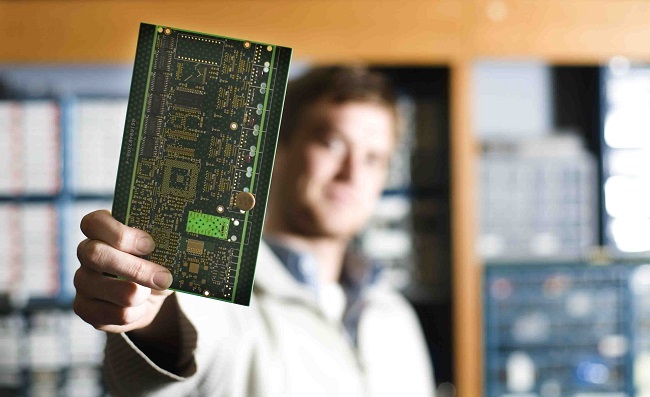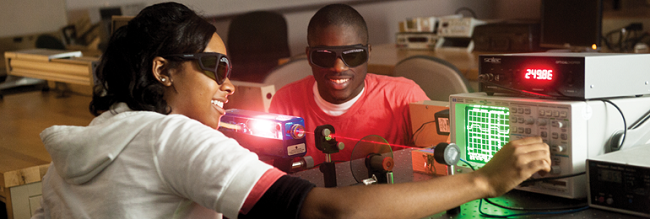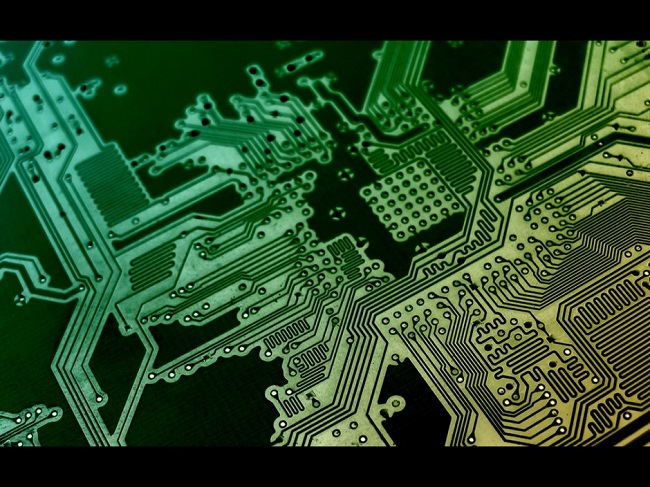
Graduating with a degree in electronics engineering opens up many opportunities beyond the electronics industry. Among the engineering degrees, a degree in electronics or electrical engineering is considered highly flexible, granting prospective students the opportunity to pursue employment in industries as diverse as aerospace, automotive, construction, defense, electronics, marine, energy, pharmaceutical, telecom, and utility, to name but a few.
According to the Bureau of Labor and Statistics, there were a total of 306,100 jobs for electronics engineers in the United States in the year 2012. The job outlook between 2012 and 2022 is positive, albeit slower-growing than other engineering fields, with 12,600 new jobs being created. Although the growth may seem slight, a couple hundred thousand jobs spread across more than 10 industries is nothing to brush off. Combine this with a median salary of $92,000 ─ $43 ─ an hour and one can easily see the potential for a lucrative livelihood.

Why are electrical and electronics positions so flexible?
The dependence of electronics in almost every walk of life ensures there will always be a need for this expertise. For starters, electrical and electronics engineers design, develop, test, and supervise the manufacturing of electrical equipment such as communication systems, power generation equipment, navigation systems, and even electric motor design. Every electrical piece of hardware or equipment ranging from a GPS to a motherboard has been worked on by an electrical or electronics engineer at some point during its design and execution. The dependence of electronics in almost every walk of life ensures there will always be a need for this expertise.
Electrical and electronics engineers will commonly find themselves performing the following tasks:
• Design electronic components, software, products, or systems for commercial, industrial, medical, military, or scientific applications
• Analyze customer needs and determine electrical system requirements, capacity, and cost
• Develop maintenance and testing procedures for electronic components and equipment
• Evaluate systems and recommend design modifications or equipment repair
• Inspect electronic equipment, instruments, and systems to verify safety standards and regulations
• Develop applications and modifications for electronic properties used in parts and systems to improve technical performance
Automotive Industry
As personal vehicles become progressively more high-tech, electrical and electronics engineers will find their responsibilities expanding beyond just designing engine control units, dashboard indicators, air-conditioning, to include Internet-of-things infused infotainment systems as well as electrical motors. The growth of Tesla Motors is testament to the automotive industry’s dependence on electronics expertise. 
Defense Industry
Engineers finding their way into the defense industry will be greeted with a host of personal growth. This field increasingly depends on cross-functional expertise due to the integrated nature of defense systems, giving the EE the chance to also acquire mechanical engineering know-how.
Consumer Goods Industry
According to Chris Traynor, career advisor and former engineer and engineering recruiter, the majority of electronics or electrical engineering graduates will find their way into manufacturing or some other stage of the supply network. ”Almost all the graduate roles are in one of two areas: manufacturing/engineering or supply network operations/logistics. And for both of these areas graduates from different disciplines would be doing similar jobs as each other. Graduates will pick up skills from other disciplines as they go through their training and career.”
The automation of manufacturing entirely relies on electrical expertise; From identifying and repairing faulty equipment, to developing and synchronizing the communication systems that make automation possible, engineers have their hands in everything. The growth of Smart Factories places even higher priority on companies to recruit electrical and electronics engineers.
Electronics Industry
The traditional sector for electrical and electronics engineers includes positions in design engineering, designing a components or products, and applications engineering, supporting the product over the course of its lifetime.

Power Generation Industry
Engineers in the energy sector have the opportunity to tailor their careers toward their interests and preferences. Experts speculate that engineers across all disciplines will be called upon to develop sustainable energy solutions once political agendas focus on the imminent climate change. The focus will be placed on developing alternative sources of energy in the form of wind, hydro, wave, tidal, solar, biomass, and combined heat and power. Electrical and electronics engineers will be needed to design the energy manifold that joins production sites with the power grid.
Supplemental Education
The engineering profession is often referred to as the “learning profession,” due to all the supplemental learning that engineers must incur in order to remain relevant; electrical and electronics engineering is no exception to this rule. A master’s degree is usually necessary for the most advanced design, development, and research programs; the degree is helpful if students wish to specialize and enter a specific industry right away.

International professional society, such as The Institute of Electrical and Electronics Engineers (IEEE), are also very helpful. They provide students with a state-by-state employer listing as well as salary information, simplifying the task of finding a job. Furthermore, members receive access to all the material published by these groups and access to their conferences; IEEE alone holds more than 4,000 annual conferences and meetings, publishing 23% of the world’s literature in electrical and electronics engineering.
Via BLS.org, Targetjobs, IEEEusa.
Advertisement
Learn more about Electronic Products Magazine





